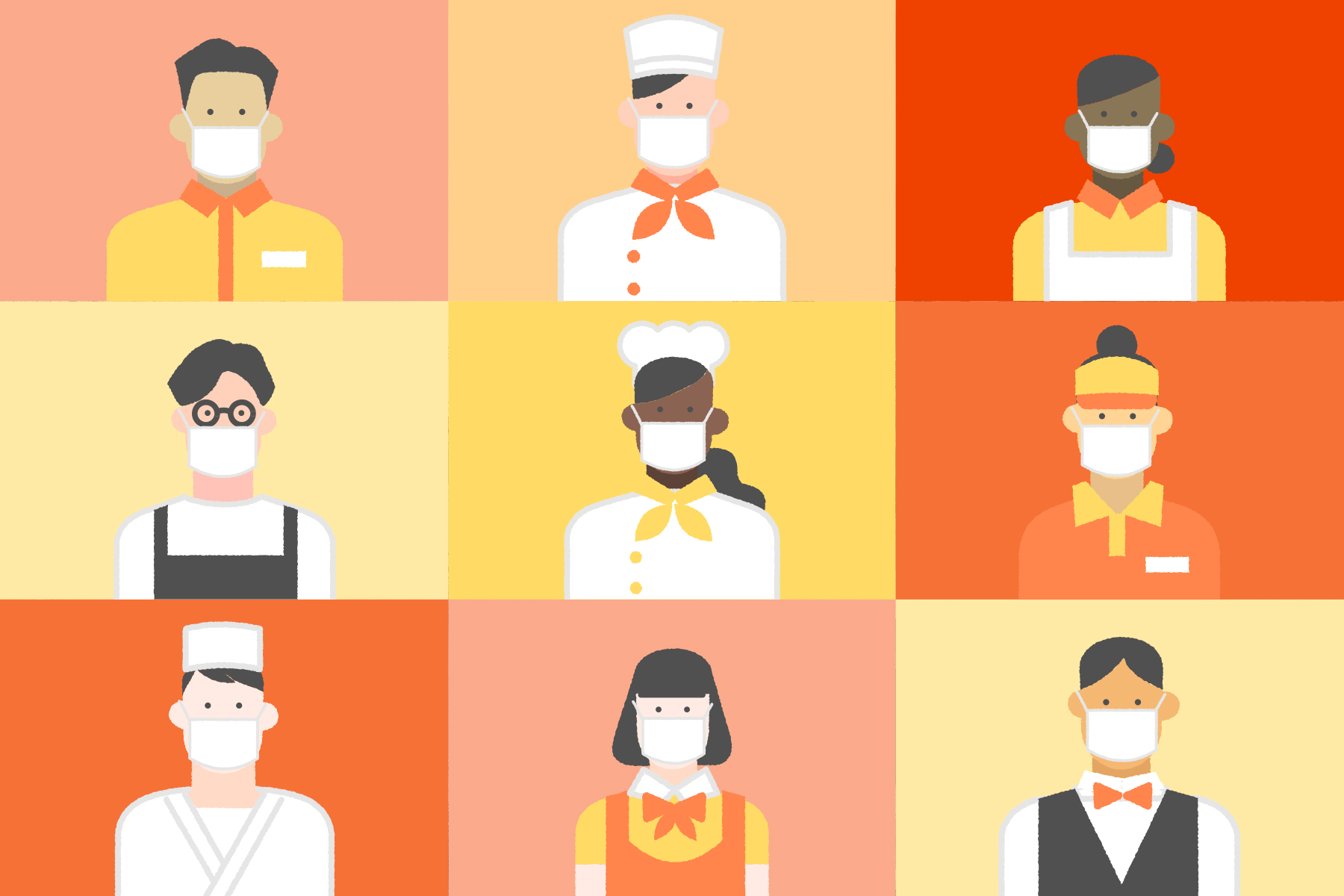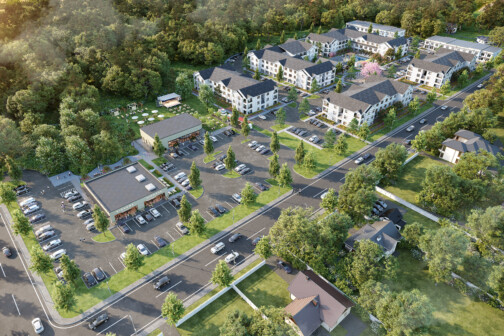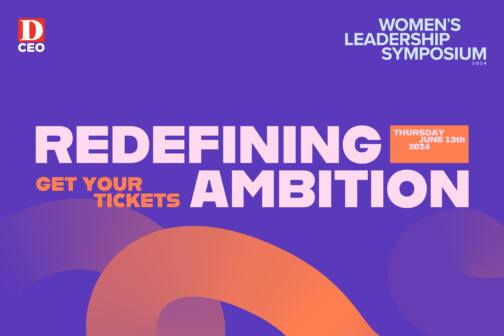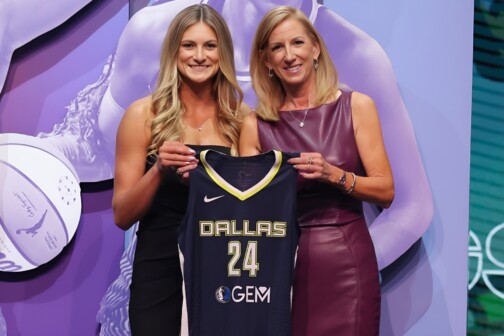This month marks the one-year anniversary of COVID flipping restaurants inside out. Dining rooms and bars closed. When Texas felt like reopening businesses again, food sector employees strapped themselves into a rollercoaster of protocols that seemed to rotate like daily menu specials. Last spring we checked with workers on Dallas’ food front line and found nervous workers pushed into a corner: going into work meant accepting risk of exposing themselves and their families to a highly contagious virus.
The hospitality industry still bobbed and weaved with every unpredictable punch. As we know, some restaurants were knocked out indefinitely or permanently.
After a very long year of this, we’ve reached out to workers in the food and drink sector again. Everyone who was interviewed for this story has been put through the wringer this year, but most maintain a hopeful outlook. (Only one requested full anonymity, which was a change from the last time we did this project: few felt comfortable speaking out.) Many have grappled with their mental health. Others have recovered from COVID themselves. Some even fell in love—amid the loneliest of times. These are their stories, edited for length and clarity.

“Day one, people didn’t have masks or didn’t know about [the house rules]. We had to turn people away. As soon as the mandate came out, it made it so much easier.
Fast forward: When they took away the mandate, that’s when we really started having problems with people and no masks. People would come in without them. I would talk to them, and they would sometimes be very, very upset. I had this one guy come in. He was like, “You’re telling me I need a mask to come in?” He grabs his kid, carries him to his truck. He comes back, still wanting to eat, puts on his mask, and then he’s cursing at me: “I just wanna sit there, three fucking feet in, and you’re telling me I have to wear a mask?” He slides the chair out, throws the mask on the table so it falls to the floor. And he’s watching me the whole dinner like he despises me. And I’m thinking, This is not even my policy, I didn’t make the rules, I’m just following the rules. I’m not the one who made them up. We try to make it all safe for everybody.
With the pandemic and job security, this is the unknown. We don’t know what the future is going to look like. We don’t know what it’s going to look like in five months. I didn’t work for a few months, which was very hard. But once we opened back up and there was the mask mandate, that gave me a little bit of hope. Because people were so happy to just grab one drink and some fresh air.
[But] I live with my sister, and she’s high risk. So every day I would be scared to go to work.
They opened up the front door for me. I was never in an enclosed space. Servers were going in and out of the restaurant grabbing their own fresh air.
When I worked a shift at Boulevardier, I had my boss tell me, ‘Whatever makes you more comfortable.’ Our employers are also trying to meet our needs. They’re not only putting the customers first. They’re putting us, too. We’re human, too. That makes me feel a lot better. I just always have the door open.”
“The night we shut down, I was there in the building. I’ve been in food and beverage for 44 years. So it’s not my first rodeo.
I’m the oldest individual in that building. I’ve got all those co-morbidities. I’ve got heart disease, asthma, hypertension, diabetes, obesity. As a 64-year-old (then 63-year-old) male, I was concerned with the unknown.
I looked at my personal situation. I was furloughed. When [Billy Can Can] started reopening for outside dining, I didn’t come back in for six months. With unemployment, I was able to keep my nose above water. I didn’t wanna come back in until I had to. Throughout that whole process, I kept saying, ‘If you need me in the house because volume needs me, I’m there.’ But [my general manager] let me push it to when my benefits ran out.
[When I returned,] I wore my mask from the moment I walked in the building till the moment I walked out. I was concerned mostly because our place is a place of fun. When I would look around, yes, people walked in with their masks and they sat down at the bar or their table with their mask, but they wouldn’t wear their mask to the restroom, necessarily, or when they were two, three, four, five deep at the bar. We are a saloon.
I haven’t seen disrespect. Occasionally somebody might not be able to totally understand you because you’ve got a mask on, and I’ll pull my mask out [away from my face], but I had a 20-year radio career so I can project across a great swath of tables.
They throw me with 10-tops and 12-tops in the back room. And because I’m projecting to 12 people, I might choose to pull [my mask] out a quarter inch or half inch as I throw it out there. No one has ever asked for me to do that.
The hardest thing has been truly not being able to provide for myself. To look in the mirror and say, ‘I need help,’ and to ask for it. This year was the first year that I had to ask for unemployment. And then for me to survive on two to three shifts a week when I’ve been working five or six or seven? We’re in March now. So it’s seven months. The water level is so close to my nose.
It’s not gonna be all sun and roses right away. The hundreds or thousands of people that have lost their jobs, that makes me really sad, but we will return. It’s still the greatest industry in the world.”
39, Former staff, The Joule
Pocta was one among hundreds of Headington Companies employees who were laid off in late March. He’d been in the service industry since he was 17 years old, but after more than two decades in the hospitality realm, Pocta reconsiders what it’d mean to return.
“I’ve kind of taken my time to think about the prospect of what a return to the industry would look like. I keep in touch with everybody I worked with and a lot of friends in the industry. I’ve seen several go back and, subsequently, leave from it—that the situation early on, when people were first going back, wasn’t great from what I’d heard. They weren’t being particularly safe or looking out for employees; a lot of people were catching COVID in the restaurants, and they weren’t really being upfront about that. I wasn’t particularly interested in getting involved in that, especially having lost insurance.
For me, it’s hard to imagine going back after having seen this play out, to the place that, you know, fired us all at the drop of a hat a day’s notice into this thing. We can’t trust them. And they didn’t build it for us, clearly. I don’t think we need to tolerate being treated the way we’ve been treated anymore.
We’ve never seen the industry get better in our whole life. We’ve had some time to process that and go through a grieving process for some people who kind of maybe idealize the industry. I think I do idealize the industry, in some ways. What I love about it is hospitality, at the end of the day, like the philosophy of hospitality. I’ve made a lot of really deep friendships through it. And the work that I’ve done, I feel like it’s valuable–it’s brought enjoyment to other people’s lives and vicariously to my own life.
And it’s been great. It’s a good way to build up a general posture about being present in the world. One thing with hospitality is you start to have some habits that are bad habits to where you only think about what the other person wants. And you only think about what the other person feels. And you sort of abdicate your responsibility to yourself.
On one side of it, I want to go back and get organized with people. I want to go back and build collective power. On the other side of it, I kind of also want to see the industry collapse. I feel like the collapse of a lot of things is becoming inevitable. And I think last couple of months especially, I’ve been thinking a lot about how going forward we need to build something for everybody. We need to think about building things for ourselves. That’s tricky. It’s hard to do. It’s hard to get skin in the game.”
“I wear many hats, from manager to server to bartender to host to whatever’s needed. With Ngon, it was scary, because we were opening as the pandemic was starting. We were contemplating whether to open at all. But we decided it’s better to try than not try at all.
At Crazee Crab, it was changing the systems and processes we were already used to. And getting very creative in our solutions. We went from being dine-in to to-go only. We started the QR codes very quickly. And even now people struggle with the QR codes.
I still remember the day [we learned] dine-in wasn’t going to be available anymore. I have never sat there and come up with a plan so quickly. The first three days, it was so hectic. We only have one phone line, and people couldn’t get through. It was scary. That was the fastest plan. Even with Ngon, we were doing to-go orders through our Facebook page. People were ordering a lot online.
But I think the pros are that especially at the very beginning, people were more understanding. A lot of people became a little kinder and a little more patient. As time went on, they got comfortable and could get a little rude. But for the most part, I feel like people were understanding of the restaurant industry navigating COVID.
Being Asian, that was scary as well.
I feel I got really lucky that throughout this that I didn’t experience any of the hate. Online we would get one or two comments maybe. But just being an Asian American myself was a little bit scary, because you see a lot online. And Ngon being Vietnamese and Asian-owned. I was nervous about that.
I was pretty afraid income-wise for me and my employees. In March or April, I felt like people were becoming more generous with tipping. To-go orders usually don’t tip that well. But we were making more or the same. People were grateful, realizing that we were playing a big part in the community. Now it’s gone back to normal.
What hurts most is when people are unkind or selfish. Giving servers a hard time when they correct them for not wearing their mask correctly over their nose and mouth. We’re just trying to keep everybody safe. That’s the most rough: watching it happen to other people or people I know. Whenever you try to say it in a nice way, very respectfully, but still get bashed on.”
“It’s been mentally taxing, I think, on everybody through all the change. Change is a difficult thing for people in general especially within the service industry. I’ve definitely gone through my own battles of struggling between the hospitality side and my own mental health side. It’s tough watching the rich get richer in real life.
It puts a bittersweet taste in your mouth. I’m fortunate to be so busy, and to have the people that come in on a regular basis, because, like, not everybody else is this lucky—you’re watching places shut down on a regular basis.
I constantly remind people to put on their masks; I think people have been a little bit friendlier about it lately. Whether or not it’s because they just want to be non-confrontational, I think a lot of times it’s people just being careless and not thinking about it.
I remember thinking that, you know, it’ll never go back to what it was. Everything was very dark for a while there, because it was just a clean sweep—everybody I knew was out of a job. I saw it as like, ‘Okay, well, this just doesn’t seem like a viable career path anymore.’ So I started exploring other options and was just met with dead end after dead end. It became really bleak.
You have a lot of bare bones staff where I know several places like restaurants that were going for the top 50 in the world, you know, where their entire management team is the one who’s running the kitchen, because everybody’s out with COVID. We’re talking about Michelin-starred restaurants. If this does happen again, I just see it going the exact same way. I don’t think we’re any better prepared for this than we were.
It’s cool to see the way that certain people have adapted, you know, but you can’t save the restaurant industry with yurts. Thank God this is Texas and our winter is less than two months.”
“When COVID hit we took big loss on all of our restaurants, with our employees and bartenders and servers, and everybody—we took a big loss with that. [We want to] let people know our businesses are open, that we survived through COVID, thank God, and we’re just glad to be here, and our food is good.
This year has been an unfortunate year. I lost my father in law in the pandemic; it was hard. And then to just sit and hear people saying, ‘Why should restaurants open back up?’ I understand all of that. I hate that COVID had come and just ruined everything. Most businesses didn’t even come back and survive from it, and I hate that. So when you go out and people say, ‘Well, how dare you open 100 percent or 75 percent,’ they just don’t understand that we have bills, too. We have families, we have lives. We have employees that need us, that depend on us. Don’t discredit us for wanting to make a living, this is our way of life. This is our livelihood. For us to keep going in the middle of all this and now we see some relief, we see some sun at the bottom shining bright, I feel so extremely thankful, blessed to be where I am right now.”
“When the shutdown happened last March, unfortunately, I had to furlough all my employees. I just worked by myself with one cook and we did to-go orders. When we were able to open back up on May 1, I had the opportunity to employ a whole bunch of people.
We had some anxiety. We were scared, of course, because—everybody is—we were putting ourselves back into the public. All of my employees, we still follow the same mandates we did before. We all wear masks, we sanitize everything. Everybody’s health and safety is our No. 1 priority, always. But people feel safe to come here because we’re outside. There’s no indoors. And so I think that’s why we’ve been so busy lately.
It is a little worrisome that now that we don’t have a mask mandate and everybody’s open at 100 percent. I am worried that there might be an influx again of COVID because everybody’s gonna go out again. But also, thank goodness, I just found out today that everybody can get vaccinated next week.
And actually, I did get COVID. I got COVID in July. I worked every single day until I got COVID. I was isolated for about three weeks. My family was even scared to come drop off groceries on my front porch because they didn’t want to go the grocery store. There were definitely moments when my fever was so high and I could not breathe. I had these pretty morbid thoughts. But I mean, when you’re that sick and you feel that terrible, I was like, ‘What happens if something happens to me, or I go unconscious, or I die and my [four-year-old] daughter is here alone?’ As soon as that happened, I taught her how to use an iPhone so she can make a phone call.
And then in September, I was sitting on my back porch with my daughter—all of a sudden I had 104º fever out of the blue. I ended up having to go to Parkland for five days, and they did all the tests in the world. I didn’t have COVID again, but they couldn’t figure out what was wrong with me. I lost 25 pounds because I did lose my sense of smell and taste, and eating was just really, really, really hard. But I’ve been following up with my doctors; they seem to think that I could have something called long haulers, which no one really knows a lot about but people are having lifetime-lasting effects on their neurological systems. But I got over that and we’re good now.
I know so many people have had a terrible experience—losing their homes or not having enough food to eat because they can’t work, not being able to pay their bills. Yes, I had COVID. And, yes, I was in the hospital. But I actually feel like 2020 was, like kind of a gift for me. I know a lot of people were very lonely and isolated, but I actually fell in love during 2020. So not only do I feel grateful that I had my job and I have my daughter, but then I also have a very special person in my life now.”
“It was very overwhelming at the beginning, because you didn’t really have a correct answer, because nobody had a correct answer. So whenever we got updates from the restaurant, it was really relieving.
I did not file for unemployment. So for three weeks, nobody was in there, it was just the manager and some of the line [cooks] doing to-gos. I was actually the first server to be called back [to handle to-gos because of] my experience as a hostess. My manager said I already had experience answering the phone and describing the dishes.
It was [nerve-wracking] when they said we would be opening up a certain percent. More and then less: hearing it by ear and trying to follow it so everyone was safe. Because if someone got COVID, everyone had to get tested. You don’t know if your coworkers are going to be safe or if they’re going to get the short end of the stick.
Thankfully for us, the management are very aware of what we are feeling. So if we have any concern, they’d find a testing site for us to go to. So our worries are answered very quickly.
What a couple of my guests have told me is they kind of see you as family. Or they see with you some sort of respect. Where you’re the first person to see them. So you wanna give them the best experience.
That is kind of what we learned: take it week by week or day by day. You never know.”
“We opened Turkey D.A.M. in Oct 2020 and opened up Ten 01 Bistro last month. I wanted people to come and have an idea that we are Black-owned and we are in Uptown—especially being Black-owned in Uptown and during COVID. The process of actually opening was tougher than sustaining business. Especially in Uptown, they’re particular about [permits]; they literally check every single thing. I have no problem following rules, they just uphold them to the T.
With the pandemic slowing down the city and the way the city operates, now it takes a week for them to get permits, then send it back and forth. What normally took two or three days, takes two or three weeks. The rent is gonna come, you can’t go to a landlord and say something like, ‘Hey, the city’s delaying me, this is delaying me, that’s kind of delaying me…’ That’s the risk you take when you do business.
My ultimate goal in this is to have this be a platform for POC or African American descent to broadcast themselves. I’ve never been a person to make it alone. My family has never made it alone. I want to host some type of an event and have vendors display products, not just food—art or African American culture is so widespread as far as what we have that we touch on.
The fact that we have been able to work with other African American businesses, we want to teach other people to do it especially during the pandemic. I’ve talked to a lot business owners, we stick together, bounce ideas ideas off each other. We support each other.
“The biggest observation-slash-funny-moment-slash-realization: I have met people that are daily regulars now and I have never seen their full face. We talk about having face-reveal parties. I worked with [owner] Michael [Wyatt] for three months without a face covering and 13 months with a face covering. We’ve been translating everything, hearing everything, speaking over noise with a mask this last year.
The coffee roastery is a loud thing. It’s like a living entity that pulsates and breathes. There’s a vacuum from the roaster, a motor from the roaster, a grinder, a steamer. I’ve timed when I start the grinder. Michael times when he starts the vacuum for the roaster. Interaction and communication hasn’t changed that much, just timing it between the grinder and the milk frothing and steaming.
We’ve observed that you notice so much from people’s eyes. A lady came in today and she had a mask that said, “I’m smiling” on it. That’s another form of communication—seeing everybody’s masks. I’m one of the plain medical mask-wearing people, but I enjoy seeing everybody’s flair. Almost daily. It can be something as simple as a color coordination. A pattern. One had programmed the LCD screen with Super Mario punching a box. It was insane. Essentially a video game on his mouth on a loop.
The topic of conversation has gone from uncertainty: What are we gonna do? Is it even gonna reach American shores? Are you vaccinated yet? You got your shot?
We have signs posted up front. We also have a set of the orders on the table. And the most recent one says that businesses are allowed to enforce their own rules. If someone shows up [without a mask], we tell them, “We’d love to serve you outside.” And most of the time, it’s ‘I was walking my dog or I forgot a mask when I left.’ It’s never been hostile.
Full City Rooster has the best customer base. Every person is a light. And times are still uncertain. But I really look forward to the day when the community table is back. Being able to see that community and have it inside and have that chatter again. That chatter and community is happening, it’s just happening outside. Being able to look over the bar while you’re making drinks and see the smiles on people’s faces, hear the conversation, peep into the conversation every once in a while. That’s something I’m looking forward to again.”
The hospitality industry still bobbed and weaved with every unpredictable punch. As we know, some restaurants were knocked out indefinitely or permanently.
After a very long year of this, we’ve reached out to workers in the food and drink sector again. Everyone who was interviewed for this story has been put through the wringer this year, but most maintain a hopeful outlook. (Only one requested full anonymity, which was a change from the last time we did this project: few felt comfortable speaking out.) Many have grappled with their mental health. Others have recovered from COVID themselves. Some even fell in love—amid the loneliest of times. These are their stories, edited for length and clarity.

Katherynn Susa
19, Hostess, Hillside Tavern, Boulevardier, Rapscallion
“Day one, people didn’t have masks or didn’t know about [the house rules]. We had to turn people away. As soon as the mandate came out, it made it so much easier.
Fast forward: When they took away the mandate, that’s when we really started having problems with people and no masks. People would come in without them. I would talk to them, and they would sometimes be very, very upset. I had this one guy come in. He was like, “You’re telling me I need a mask to come in?” He grabs his kid, carries him to his truck. He comes back, still wanting to eat, puts on his mask, and then he’s cursing at me: “I just wanna sit there, three fucking feet in, and you’re telling me I have to wear a mask?” He slides the chair out, throws the mask on the table so it falls to the floor. And he’s watching me the whole dinner like he despises me. And I’m thinking, This is not even my policy, I didn’t make the rules, I’m just following the rules. I’m not the one who made them up. We try to make it all safe for everybody.
With the pandemic and job security, this is the unknown. We don’t know what the future is going to look like. We don’t know what it’s going to look like in five months. I didn’t work for a few months, which was very hard. But once we opened back up and there was the mask mandate, that gave me a little bit of hope. Because people were so happy to just grab one drink and some fresh air.
[But] I live with my sister, and she’s high risk. So every day I would be scared to go to work.
They opened up the front door for me. I was never in an enclosed space. Servers were going in and out of the restaurant grabbing their own fresh air.
When I worked a shift at Boulevardier, I had my boss tell me, ‘Whatever makes you more comfortable.’ Our employers are also trying to meet our needs. They’re not only putting the customers first. They’re putting us, too. We’re human, too. That makes me feel a lot better. I just always have the door open.”
“I’ve got all those co-morbidities. I’ve got heart disease, asthma, hypertension, diabetes, obesity…. I was concerned with the unknown.”
Jack Lindstrom
Jack Lindstrom
64, Server, Billy Can Can
“The night we shut down, I was there in the building. I’ve been in food and beverage for 44 years. So it’s not my first rodeo.
I’m the oldest individual in that building. I’ve got all those co-morbidities. I’ve got heart disease, asthma, hypertension, diabetes, obesity. As a 64-year-old (then 63-year-old) male, I was concerned with the unknown.
I looked at my personal situation. I was furloughed. When [Billy Can Can] started reopening for outside dining, I didn’t come back in for six months. With unemployment, I was able to keep my nose above water. I didn’t wanna come back in until I had to. Throughout that whole process, I kept saying, ‘If you need me in the house because volume needs me, I’m there.’ But [my general manager] let me push it to when my benefits ran out.
[When I returned,] I wore my mask from the moment I walked in the building till the moment I walked out. I was concerned mostly because our place is a place of fun. When I would look around, yes, people walked in with their masks and they sat down at the bar or their table with their mask, but they wouldn’t wear their mask to the restroom, necessarily, or when they were two, three, four, five deep at the bar. We are a saloon.
I haven’t seen disrespect. Occasionally somebody might not be able to totally understand you because you’ve got a mask on, and I’ll pull my mask out [away from my face], but I had a 20-year radio career so I can project across a great swath of tables.
They throw me with 10-tops and 12-tops in the back room. And because I’m projecting to 12 people, I might choose to pull [my mask] out a quarter inch or half inch as I throw it out there. No one has ever asked for me to do that.
The hardest thing has been truly not being able to provide for myself. To look in the mirror and say, ‘I need help,’ and to ask for it. This year was the first year that I had to ask for unemployment. And then for me to survive on two to three shifts a week when I’ve been working five or six or seven? We’re in March now. So it’s seven months. The water level is so close to my nose.
It’s not gonna be all sun and roses right away. The hundreds or thousands of people that have lost their jobs, that makes me really sad, but we will return. It’s still the greatest industry in the world.”
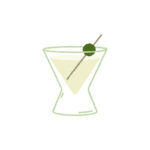 Benj Pocta
Benj Pocta
39, Former staff, The Joule
Pocta was one among hundreds of Headington Companies employees who were laid off in late March. He’d been in the service industry since he was 17 years old, but after more than two decades in the hospitality realm, Pocta reconsiders what it’d mean to return.
“I’ve kind of taken my time to think about the prospect of what a return to the industry would look like. I keep in touch with everybody I worked with and a lot of friends in the industry. I’ve seen several go back and, subsequently, leave from it—that the situation early on, when people were first going back, wasn’t great from what I’d heard. They weren’t being particularly safe or looking out for employees; a lot of people were catching COVID in the restaurants, and they weren’t really being upfront about that. I wasn’t particularly interested in getting involved in that, especially having lost insurance.
For me, it’s hard to imagine going back after having seen this play out, to the place that, you know, fired us all at the drop of a hat a day’s notice into this thing. We can’t trust them. And they didn’t build it for us, clearly. I don’t think we need to tolerate being treated the way we’ve been treated anymore.
We’ve never seen the industry get better in our whole life. We’ve had some time to process that and go through a grieving process for some people who kind of maybe idealize the industry. I think I do idealize the industry, in some ways. What I love about it is hospitality, at the end of the day, like the philosophy of hospitality. I’ve made a lot of really deep friendships through it. And the work that I’ve done, I feel like it’s valuable–it’s brought enjoyment to other people’s lives and vicariously to my own life.
And it’s been great. It’s a good way to build up a general posture about being present in the world. One thing with hospitality is you start to have some habits that are bad habits to where you only think about what the other person wants. And you only think about what the other person feels. And you sort of abdicate your responsibility to yourself.
On one side of it, I want to go back and get organized with people. I want to go back and build collective power. On the other side of it, I kind of also want to see the industry collapse. I feel like the collapse of a lot of things is becoming inevitable. And I think last couple of months especially, I’ve been thinking a lot about how going forward we need to build something for everybody. We need to think about building things for ourselves. That’s tricky. It’s hard to do. It’s hard to get skin in the game.”
“One thing with hospitality is you start to have some habits that are bad habits to where you only think about what the other person wants.”
Benj Pocta
Lyna Tran
25, Manager-server, Ngon and Crazee Crab
“I wear many hats, from manager to server to bartender to host to whatever’s needed. With Ngon, it was scary, because we were opening as the pandemic was starting. We were contemplating whether to open at all. But we decided it’s better to try than not try at all.
At Crazee Crab, it was changing the systems and processes we were already used to. And getting very creative in our solutions. We went from being dine-in to to-go only. We started the QR codes very quickly. And even now people struggle with the QR codes.
I still remember the day [we learned] dine-in wasn’t going to be available anymore. I have never sat there and come up with a plan so quickly. The first three days, it was so hectic. We only have one phone line, and people couldn’t get through. It was scary. That was the fastest plan. Even with Ngon, we were doing to-go orders through our Facebook page. People were ordering a lot online.
But I think the pros are that especially at the very beginning, people were more understanding. A lot of people became a little kinder and a little more patient. As time went on, they got comfortable and could get a little rude. But for the most part, I feel like people were understanding of the restaurant industry navigating COVID.
Being Asian, that was scary as well.
I feel I got really lucky that throughout this that I didn’t experience any of the hate. Online we would get one or two comments maybe. But just being an Asian American myself was a little bit scary, because you see a lot online. And Ngon being Vietnamese and Asian-owned. I was nervous about that.
I was pretty afraid income-wise for me and my employees. In March or April, I felt like people were becoming more generous with tipping. To-go orders usually don’t tip that well. But we were making more or the same. People were grateful, realizing that we were playing a big part in the community. Now it’s gone back to normal.
What hurts most is when people are unkind or selfish. Giving servers a hard time when they correct them for not wearing their mask correctly over their nose and mouth. We’re just trying to keep everybody safe. That’s the most rough: watching it happen to other people or people I know. Whenever you try to say it in a nice way, very respectfully, but still get bashed on.”
 Anonymous
Anonymous
31, Server, an Uptown Dallas restaurant
“It’s been mentally taxing, I think, on everybody through all the change. Change is a difficult thing for people in general especially within the service industry. I’ve definitely gone through my own battles of struggling between the hospitality side and my own mental health side. It’s tough watching the rich get richer in real life.
It puts a bittersweet taste in your mouth. I’m fortunate to be so busy, and to have the people that come in on a regular basis, because, like, not everybody else is this lucky—you’re watching places shut down on a regular basis.
I constantly remind people to put on their masks; I think people have been a little bit friendlier about it lately. Whether or not it’s because they just want to be non-confrontational, I think a lot of times it’s people just being careless and not thinking about it.
I remember thinking that, you know, it’ll never go back to what it was. Everything was very dark for a while there, because it was just a clean sweep—everybody I knew was out of a job. I saw it as like, ‘Okay, well, this just doesn’t seem like a viable career path anymore.’ So I started exploring other options and was just met with dead end after dead end. It became really bleak.
You have a lot of bare bones staff where I know several places like restaurants that were going for the top 50 in the world, you know, where their entire management team is the one who’s running the kitchen, because everybody’s out with COVID. We’re talking about Michelin-starred restaurants. If this does happen again, I just see it going the exact same way. I don’t think we’re any better prepared for this than we were.
It’s cool to see the way that certain people have adapted, you know, but you can’t save the restaurant industry with yurts. Thank God this is Texas and our winter is less than two months.”
“It’s cool to see the way that certain people have adapted, you know, but you can’t save the restaurant industry with yurts.”
Deanna Price
50, co-owner/marketing, South Dallas Cafe, Vinetti’s, DJ’s Steakhouse, The Wing Mac
“When COVID hit we took big loss on all of our restaurants, with our employees and bartenders and servers, and everybody—we took a big loss with that. [We want to] let people know our businesses are open, that we survived through COVID, thank God, and we’re just glad to be here, and our food is good.
This year has been an unfortunate year. I lost my father in law in the pandemic; it was hard. And then to just sit and hear people saying, ‘Why should restaurants open back up?’ I understand all of that. I hate that COVID had come and just ruined everything. Most businesses didn’t even come back and survive from it, and I hate that. So when you go out and people say, ‘Well, how dare you open 100 percent or 75 percent,’ they just don’t understand that we have bills, too. We have families, we have lives. We have employees that need us, that depend on us. Don’t discredit us for wanting to make a living, this is our way of life. This is our livelihood. For us to keep going in the middle of all this and now we see some relief, we see some sun at the bottom shining bright, I feel so extremely thankful, blessed to be where I am right now.”
 Paige Bluejacket
Paige Bluejacket
39, general manager, Toller Patio
“When the shutdown happened last March, unfortunately, I had to furlough all my employees. I just worked by myself with one cook and we did to-go orders. When we were able to open back up on May 1, I had the opportunity to employ a whole bunch of people.
We had some anxiety. We were scared, of course, because—everybody is—we were putting ourselves back into the public. All of my employees, we still follow the same mandates we did before. We all wear masks, we sanitize everything. Everybody’s health and safety is our No. 1 priority, always. But people feel safe to come here because we’re outside. There’s no indoors. And so I think that’s why we’ve been so busy lately.
It is a little worrisome that now that we don’t have a mask mandate and everybody’s open at 100 percent. I am worried that there might be an influx again of COVID because everybody’s gonna go out again. But also, thank goodness, I just found out today that everybody can get vaccinated next week.
And actually, I did get COVID. I got COVID in July. I worked every single day until I got COVID. I was isolated for about three weeks. My family was even scared to come drop off groceries on my front porch because they didn’t want to go the grocery store. There were definitely moments when my fever was so high and I could not breathe. I had these pretty morbid thoughts. But I mean, when you’re that sick and you feel that terrible, I was like, ‘What happens if something happens to me, or I go unconscious, or I die and my [four-year-old] daughter is here alone?’ As soon as that happened, I taught her how to use an iPhone so she can make a phone call.
And then in September, I was sitting on my back porch with my daughter—all of a sudden I had 104º fever out of the blue. I ended up having to go to Parkland for five days, and they did all the tests in the world. I didn’t have COVID again, but they couldn’t figure out what was wrong with me. I lost 25 pounds because I did lose my sense of smell and taste, and eating was just really, really, really hard. But I’ve been following up with my doctors; they seem to think that I could have something called long haulers, which no one really knows a lot about but people are having lifetime-lasting effects on their neurological systems. But I got over that and we’re good now.
I know so many people have had a terrible experience—losing their homes or not having enough food to eat because they can’t work, not being able to pay their bills. Yes, I had COVID. And, yes, I was in the hospital. But I actually feel like 2020 was, like kind of a gift for me. I know a lot of people were very lonely and isolated, but I actually fell in love during 2020. So not only do I feel grateful that I had my job and I have my daughter, but then I also have a very special person in my life now.”
Ailyn Arzola
23, Server, José
“It was very overwhelming at the beginning, because you didn’t really have a correct answer, because nobody had a correct answer. So whenever we got updates from the restaurant, it was really relieving.
I did not file for unemployment. So for three weeks, nobody was in there, it was just the manager and some of the line [cooks] doing to-gos. I was actually the first server to be called back [to handle to-gos because of] my experience as a hostess. My manager said I already had experience answering the phone and describing the dishes.
It was [nerve-wracking] when they said we would be opening up a certain percent. More and then less: hearing it by ear and trying to follow it so everyone was safe. Because if someone got COVID, everyone had to get tested. You don’t know if your coworkers are going to be safe or if they’re going to get the short end of the stick.
Thankfully for us, the management are very aware of what we are feeling. So if we have any concern, they’d find a testing site for us to go to. So our worries are answered very quickly.
What a couple of my guests have told me is they kind of see you as family. Or they see with you some sort of respect. Where you’re the first person to see them. So you wanna give them the best experience.
That is kind of what we learned: take it week by week or day by day. You never know.”
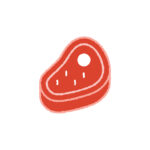 David Singh
David Singh
31, Co-owner, Turkey D.A.M., Ten 01 Bistro
“We opened Turkey D.A.M. in Oct 2020 and opened up Ten 01 Bistro last month. I wanted people to come and have an idea that we are Black-owned and we are in Uptown—especially being Black-owned in Uptown and during COVID. The process of actually opening was tougher than sustaining business. Especially in Uptown, they’re particular about [permits]; they literally check every single thing. I have no problem following rules, they just uphold them to the T.
With the pandemic slowing down the city and the way the city operates, now it takes a week for them to get permits, then send it back and forth. What normally took two or three days, takes two or three weeks. The rent is gonna come, you can’t go to a landlord and say something like, ‘Hey, the city’s delaying me, this is delaying me, that’s kind of delaying me…’ That’s the risk you take when you do business.
My ultimate goal in this is to have this be a platform for POC or African American descent to broadcast themselves. I’ve never been a person to make it alone. My family has never made it alone. I want to host some type of an event and have vendors display products, not just food—art or African American culture is so widespread as far as what we have that we touch on.
The fact that we have been able to work with other African American businesses, we want to teach other people to do it especially during the pandemic. I’ve talked to a lot business owners, we stick together, bounce ideas ideas off each other. We support each other.
“I really look forward to the day when the community table is back. Being able to see that community and have it inside and have that chatter again.”
Johnny Aiken
Johnny Aiken
38, Barista, Full City Rooster
“The biggest observation-slash-funny-moment-slash-realization: I have met people that are daily regulars now and I have never seen their full face. We talk about having face-reveal parties. I worked with [owner] Michael [Wyatt] for three months without a face covering and 13 months with a face covering. We’ve been translating everything, hearing everything, speaking over noise with a mask this last year.
The coffee roastery is a loud thing. It’s like a living entity that pulsates and breathes. There’s a vacuum from the roaster, a motor from the roaster, a grinder, a steamer. I’ve timed when I start the grinder. Michael times when he starts the vacuum for the roaster. Interaction and communication hasn’t changed that much, just timing it between the grinder and the milk frothing and steaming.
We’ve observed that you notice so much from people’s eyes. A lady came in today and she had a mask that said, “I’m smiling” on it. That’s another form of communication—seeing everybody’s masks. I’m one of the plain medical mask-wearing people, but I enjoy seeing everybody’s flair. Almost daily. It can be something as simple as a color coordination. A pattern. One had programmed the LCD screen with Super Mario punching a box. It was insane. Essentially a video game on his mouth on a loop.
The topic of conversation has gone from uncertainty: What are we gonna do? Is it even gonna reach American shores? Are you vaccinated yet? You got your shot?
We have signs posted up front. We also have a set of the orders on the table. And the most recent one says that businesses are allowed to enforce their own rules. If someone shows up [without a mask], we tell them, “We’d love to serve you outside.” And most of the time, it’s ‘I was walking my dog or I forgot a mask when I left.’ It’s never been hostile.
Full City Rooster has the best customer base. Every person is a light. And times are still uncertain. But I really look forward to the day when the community table is back. Being able to see that community and have it inside and have that chatter again. That chatter and community is happening, it’s just happening outside. Being able to look over the bar while you’re making drinks and see the smiles on people’s faces, hear the conversation, peep into the conversation every once in a while. That’s something I’m looking forward to again.”
Get the SideDish Newsletter
Dallas' hottest dining news, recipes, and reviews served up fresh to your inbox each week.


